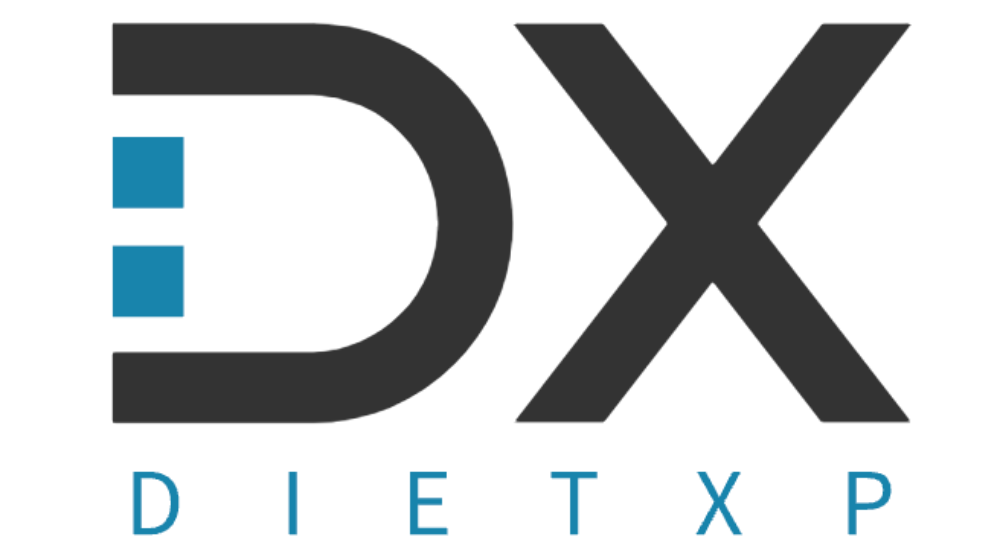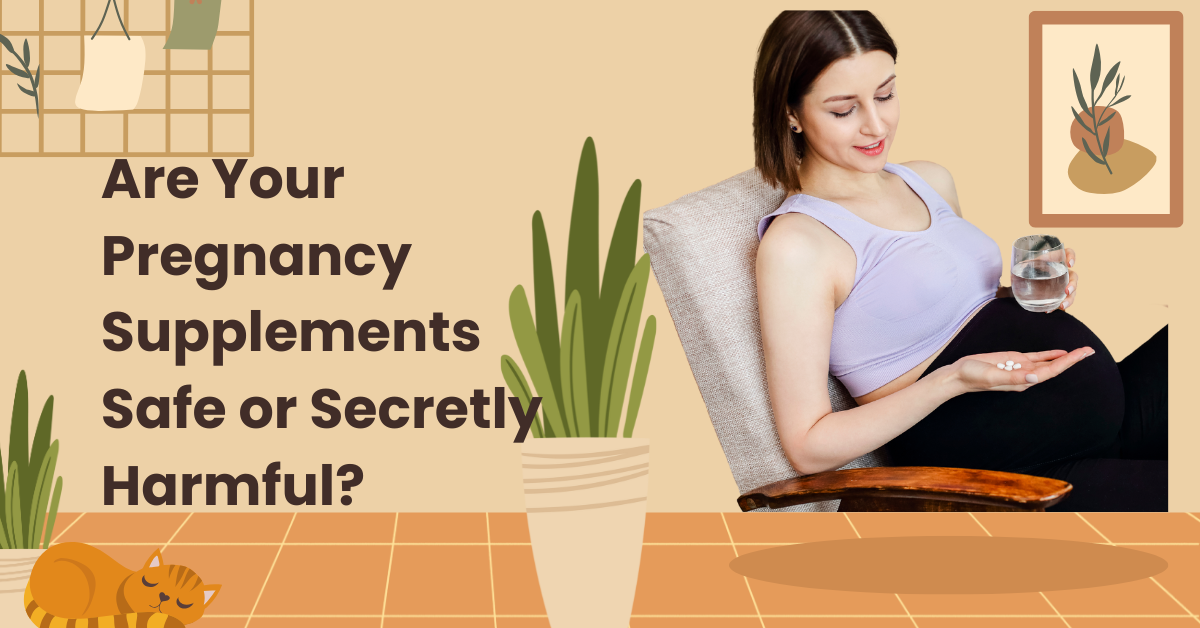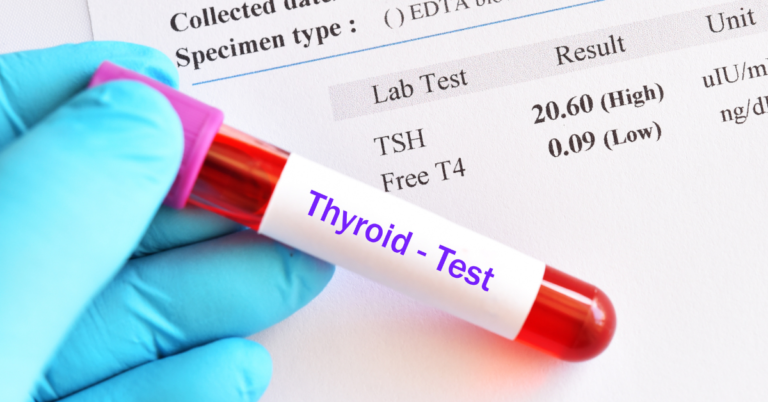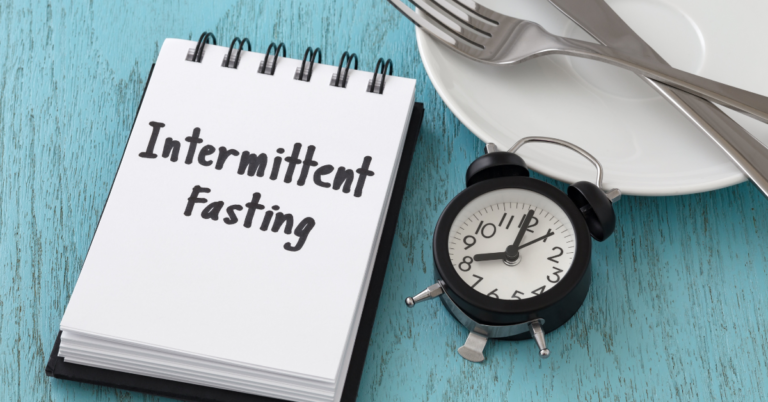Table of Contents
Pregnancy can be an exciting but overwhelming time, especially when it comes to figuring out what’s safe for you and your baby. Navigating the world of vitamins and supplements shouldn’t add to that stress.
You’ve probably heard that certain things are strictly off-limits during pregnancy, like high-mercury seafood, alcohol, and smoking. But did you know that some vitamins, minerals, and herbal supplements should also be avoided? It’s not always easy to know what’s safe, especially with the flood of conflicting information out there.
To make things clearer, this article explains which supplements are generally considered safe during pregnancy and why some others might be best left on the shelf. We’ve got all the information you need to help you make the best decisions for you and your growing baby.
Why Should You Take Supplements During Pregnancy?
Getting the right nutrients is crucial at every stage of life, but during pregnancy, it becomes absolutely essential. You’re not just nourishing yourself—you’re also providing for your growing baby. By ensuring proper nutrition, you’re giving your little one the best possible start while keeping yourself energized and healthy throughout the journey.

Why Nutrient Needs Skyrocket During Pregnancy 🚀
During pregnancy, your body’s demand for nutrients increases dramatically to support fetal development and maternal health. Here’s how these needs change:
1. Macronutrients:
- Proteins, carbohydrates, and fats are essential for energy and tissue growth.
- Protein needs increase from 0.36 grams per pound (0.8 grams per kg) of body weight for non-pregnant women to 0.5 grams per pound (1.1 grams per kg) during pregnancy. Including protein in every meal ensures you meet these demands.
2. Micronutrients:
The need for vitamins, minerals, and trace elements rises even more than macronutrients. Nutrients like folate, iron, calcium, and vitamin D become particularly important, and supplements may be necessary to meet these requirements.
Common Reasons for Supplementation 💊
Even with a nutrient-rich diet, some women may require supplements due to:
- Nutrient Deficiencies: A lack of key nutrients like folate, linked to birth defects such as spina bifida.
- Hyperemesis Gravidarum: Severe nausea and vomiting, leading to weight loss and nutrient deficits.
- Dietary Restrictions: Vegans or those with food intolerances may need extra support to avoid deficiencies.
- Smoking: Smoking increases the need for vitamin C and folate, although quitting is strongly recommended.
- Multiple Pregnancies: Carrying twins or more raises nutrient needs for both mom and babies.
- Genetic Mutations (e.g., MTHFR): Certain mutations may require specific forms of nutrients, such as folate.
- Poor Nutrition: Under-eating or consuming nutrient-poor foods may necessitate supplementation.
Expert Recommendations 🩺
Organizations like the American College of Obstetricians and Gynecologists (ACOG) recommend that:
- All pregnant women take a prenatal vitamin and folic acid supplement to prevent developmental abnormalities like spina bifida.
- Supplements should address individual needs based on blood tests, dietary habits, and health conditions.
Always consult your healthcare provider for personalized advice on supplement use.
Nourish for Two: The Bottom Line 🧡
Proper nutrition during pregnancy is about balance:
- Focus on a nutrient-dense diet rich in whole foods like fruits, vegetables, lean proteins, and healthy fats.
- Incorporate prenatal vitamins to fill nutritional gaps.
- Listen to your body and follow your healthcare provider’s guidance to meet your unique needs.
By prioritizing your health, you’re giving your baby the best possible foundation—and you’ll feel stronger and more vibrant throughout your pregnancy journey. You’re not just eating for two—you’re thriving for two! 💕
Herbal Supplements During Pregnancy: Are They Really Safe? 🌿
Many pregnant individuals turn to herbal supplements alongside micronutrients to manage symptoms like nausea, stress, and digestion. However, while some herbs can be beneficial, others may pose significant risks if used improperly or without medical guidance.
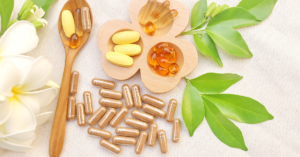
How Common Are Herbal Supplements?
According to studies:
- A 2019 study found that 15.4% of pregnant women in the U.S. use herbal supplements, but many do not disclose this to their healthcare providers (source).
- A 2017 study revealed that about 25% of herbal supplement users fail to inform their doctors, increasing the risk of adverse effects or dangerous interactions (source).
The Benefits and Risks:
Some herbs, such as ginger and peppermint, have been shown to relieve nausea and digestion issues:
- Ginger: Widely recognized as a remedy for nausea, with studies supporting its effectiveness in reducing pregnancy-induced symptoms.
- Peppermint: Commonly used to soothe upset stomachs.
On the flip side, certain herbs can be dangerous during pregnancy:
- Goldenseal and dong quai: Linked to miscarriage and other serious complications.
- Herbs that cause uterine contractions or interfere with medication may pose additional risks.
Limited Research and Lack of Regulation
The safety of many herbal supplements during pregnancy remains uncertain due to limited research and a lack of regulation. Without robust clinical trials, it’s challenging to determine how these supplements interact with pregnancy.
Stay Safe:
- Always Inform Your Healthcare Provider: Keeping them updated on any herbal supplements or dietary changes ensures you avoid risks and complications.
- Exercise Caution: Stick to herbs with established safety profiles and avoid those with unknown or harmful effects.
💡 Pro Tip: While herbal supplements might seem like a natural solution, their impact on pregnancy can vary widely. Always prioritize professional guidance to ensure a safe and healthy pregnancy for you and your baby. When in doubt, consult your doctor!
Safe and Essential Supplements for a Healthy Pregnancy
Being pregnant is an exciting journey, but it also comes with a lot of questions—especially about what’s safe for you and your baby. Supplements can play an important role in supporting a healthy pregnancy, but it’s crucial to make sure they’re safe. Always talk to your healthcare provider before adding anything new to your routine—they’re there to help you understand what’s truly necessary.
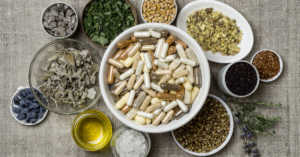
- Talk to Your Doctor First 🤝: Before taking any micronutrient or herbal supplements, make sure your healthcare provider gives the green light. Even natural supplements can pose risks if taken incorrectly. Your doctor will help you find the right dose, making sure everything is just right for you and your growing baby.
- Choose Trusted Brands 🏆: Not all supplements are created equal. Always choose supplements from a reputable brand. Look for products that have been tested by third-party organizations like the United States Pharmacopeia (USP), Indian Pharmacopoeia (IP), Food Safety and Standards Authority of India (FSSAI), or Ayush. These certifications mean that the product meets strict standards for quality, safety, and purity—so you know you’re getting what you need without the unwanted extras.
- Ask Your Pharmacist for Advice 💊: Not sure which brands to trust? Your local pharmacist can be an incredible resource. Pharmacists know all about different supplement brands and can recommend the best options based on their expertise—helping you make safe, informed decisions.
- Stick to the Essentials 🌱: During pregnancy, there are some key supplements that are usually recommended to support your health and your baby’s development. These include prenatal vitamins, folic acid, iron, calcium, and omega-3 fatty acids. Stick to what your doctor specifically advises—taking too much of a good thing can sometimes do more harm than good.
Choosing high-quality supplements that are approved by your healthcare provider and tailored to your needs is one of the best ways to support both your well-being and your baby’s. Always err on the side of caution—consult your healthcare provider to prioritize your health and safety, and make sure all supplements you take are right for both you and your little one.
1. Prenatal Vitamins: The Foundation for a Healthy Pregnancy 🍼
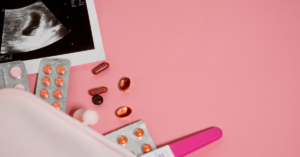
Prenatal vitamins are specially formulated multivitamins that meet the increased need for micronutrients during pregnancy. Ideally, they should be taken before conception, throughout pregnancy, and while breastfeeding.
Studies show that prenatal vitamins can help reduce the risk of complications like preterm birth and preeclampsia—a potentially dangerous condition involving high blood pressure and protein in the urine. While prenatal vitamins can’t replace a well-balanced diet, they do help fill in the gaps, ensuring both you and your baby get essential nutrients.
Since prenatal vitamins provide the key vitamins and minerals you need, extra supplements might not be necessary—unless your doctor specifically recommends them. Prenatal vitamins are often prescribed by healthcare providers, but you can also find them over-the-counter.
2. Folate: Vital for Baby’s Development 🌱

Folate is an essential B vitamin that plays a major role in DNA synthesis, red blood cell production, and the healthy growth of your baby. The synthetic version of folate, called folic acid, is commonly found in supplements and gets converted into L-methylfolate—the active form that your body can use.
To help reduce the risk of neural tube defects and other congenital issues like cleft palate and heart defects, it’s recommended that pregnant women take at least 600 micrograms (mcg) of folate or folic acid daily (NIH Office of Dietary Supplements). This ensures both mom and baby get enough of this important nutrient.
A review of five studies involving over 6,100 women showed that taking folic acid daily significantly lowers the risk of neural tube defects, with no negative side effects noted (PubMed). Although a balanced diet can provide folate, many women may not get enough from food alone—making supplementation important to fill the gap.
The Centers for Disease Control and Prevention (CDC) also recommends that all women of childbearing age take at least 400 mcg of folate or folic acid daily. Since many pregnancies are unplanned, having enough folate in your system can prevent birth defects that might happen very early—even before you know you’re pregnant (CDC Folic Acid Information).
For women with the MTHFR genetic mutation, choosing a supplement that contains L-methylfolate is especially wise. This form of folate doesn’t need to be converted by the body, making it easier to absorb and ensuring you get the maximum benefit.
3. Iron: Boosting Blood and Oxygen for You and Baby 🩸

During pregnancy, your need for iron goes way up because your blood volume increases by about 45% (source). Iron is key for transporting oxygen throughout your body and plays a vital role in helping both your baby and placenta grow healthy and strong. Iron is vital for transporting oxygen throughout your body and supports the healthy growth and development of both your baby and the placenta.
In the United States, about 18% of pregnant women are iron deficient, and 5% of them develop anemia (Linus Pauling Institute). Anemia during pregnancy can lead to preterm delivery, maternal depression, and infant anemia, making it especially important to get enough iron. Anemia during pregnancy has been linked to preterm delivery, maternal depression, and infant anemia, which highlights just how important it is to get enough iron during pregnancy.
The recommended daily intake is 27 milligrams (mg) of iron, which is often included in most prenatal vitamins (NIH Office of Dietary Supplements). If you have iron deficiency or anemia, your doctor may recommend higher doses to make sure you and your baby stay healthy and strong.
If you’re not iron deficient, avoid taking extra iron—it can cause side effects like constipation, vomiting, and elevated hemoglobin levels. Always check with your healthcare provider before changing your iron intake to ensure it’s the best choice for both you and your baby.
4. Vitamin D: Building Strong Bones and Immunity ☀️

Vitamin D is a fat-soluble vitamin that plays an essential role in immune function, bone health, and cell division. Ensuring you get enough vitamin D during pregnancy is crucial for the well-being of both you and your baby.
Vitamin D deficiency during pregnancy has been linked to a higher risk of complications, including cesarean section, preeclampsia, preterm birth, and gestational diabetes (NIH Office of Dietary Supplements). According to the current guidelines, the recommended daily intake is 600 IU (15 mcg) per day. However, some experts suggest that vitamin D requirements during pregnancy may be much higher to fully support maternal and fetal health (Journal of Nutrition Review).
It’s always wise to check in with your doctor about screening for vitamin D deficiency and determining the proper supplementation for you. Your healthcare provider can guide you to ensure you’re getting the right amount of this crucial vitamin to support a healthy pregnancy and help prevent complications.
5. Magnesium: Supporting Relaxation and Preventing Complications 💪
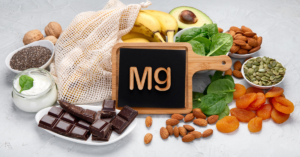
Magnesium is a crucial mineral involved in hundreds of chemical reactions in your body. It plays an important role in immune function, muscle health, and nerve function. During pregnancy, magnesium is key for keeping muscles—including the uterus—relaxed and functioning well.
A deficiency in magnesium during pregnancy can increase the risk of chronic hypertension and premature labor. Some studies suggest that supplementing with magnesium may help reduce the risk of complications like fetal growth restriction and preterm birth.
If you’re concerned about your magnesium levels, talk to your healthcare provider about whether supplementation could be helpful for you.
6. Ginger: Your Natural Nausea Fighter 🌿
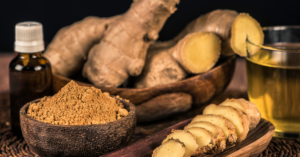
Ginger root is a popular herbal remedy that’s been used for centuries, and it’s not just for cooking! When it comes to pregnancy, ginger can be a real game-changer for managing nausea. Whether it’s from motion sickness, morning sickness, or even chemotherapy, ginger has your back.
Research shows that ginger is both safe and effective for easing pregnancy-related nausea and vomiting—just what you need to feel a little more like yourself (source). Morning sickness—that pesky nausea and vomiting—affects up to 80% of women during their first trimester (source).
Ginger could be just the natural boost you need to tackle morning sickness, but remember—more research is needed to find the safest dosage. Always check with your doctor before adding ginger supplements to your routine to make sure they’re the best choice for you.
7. Fish Oil: Boosting Baby’s Brain Development Naturally 🐟
Fish oil is a fantastic source of docosahexaenoic acid (DHA) and eicosapentaenoic acid (EPA)—two essential fatty acids that play a big role in your baby’s brain development.
Taking DHA and EPA during pregnancy may help support your baby’s brain growth and reduce the risk of maternal depression. However, the research on these benefits is mixed, so it’s important to stay informed and make the best decision for you and your baby.
Some studies suggest that fish oil supplements during pregnancy can boost your child’s cognitive function. But not all studies agree. For example, a 2010 study with 2,399 women found no significant difference in the cognitive function of infants whose mothers took fish oil capsules (800 mg of DHA per day) compared to those who did not. The study also found no effect on maternal depression (source: PubMed).
On the bright side, the same study found that fish oil helped protect against preterm delivery. Plus, other evidence suggests that it may benefit fetal eye development. Additionally, some experts believe that DHA and EPA can support immune system development and may even reduce the chances of certain allergies in infants.
If you’re wondering how to get more DHA and EPA naturally, there are plenty of tasty options! Salmon, sardines, pollock, and mackerel are all excellent choices. You can also find DHA in fortified foods like certain brands of eggs, yogurt, and milk. For vegetarians or those who don’t eat fish, algae-based DHA supplements are a great alternative that provides similar benefits without the fishy aftertaste.
DHA levels are crucial for your baby’s development, but it’s still unclear if taking fish oil supplements is absolutely necessary. The good news is that fish oil is generally considered safe during pregnancy, and getting enough DHA and EPA can be as simple as enjoying some delicious, low-mercury seafood.
Aim to include two to three servings of low-mercury fish each week. Options like salmon, sardines, or pollock are packed with the nutrients you need for a healthy pregnancy and are a delicious way to support your baby’s development. If you’re not a fan of fish, consider adding flaxseeds, chia seeds, or walnuts to your diet, as they contain alpha-linolenic acid (ALA), which your body can convert (in small amounts) to DHA and EPA.
Remember, it’s always best to consult with your healthcare provider before starting any supplements. They can help you determine the right approach for your unique needs, ensuring you and your baby get all the essential nutrients for a healthy journey together.
8. Probiotics: Supporting Gut Health for You and Your Baby 🌿
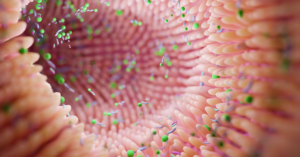
With the growing awareness of gut health, many parents-to-be are turning to probiotics. Probiotics are live microorganisms that can help maintain a healthy balance of bacteria in your digestive system, which is especially important during pregnancy.
Many studies have shown that probiotics are safe to take during pregnancy, with no harmful side effects identified, aside from an extremely low risk of probiotic-induced infection (source: NCBI). Plus, they come with some amazing benefits for both mom and baby!
Probiotics may help reduce the risk of gestational diabetes, postpartum depression, and even infant eczema and dermatitis. Keeping your gut healthy can also positively affect your overall well-being, making pregnancy a smoother experience.
You can find probiotics in foods like yogurt, kefir, sauerkraut, kimchi, and other fermented foods. If you prefer supplements, look for ones specifically formulated for pregnancy to ensure safety and effectiveness.
Research on probiotics in pregnancy is ongoing, and we’re learning more about how they can support both maternal and fetal health. Including probiotic-rich foods in your diet can be an easy and natural way to nurture your gut and provide potential benefits for your baby too.
As always, talk to your healthcare provider before starting any new supplements. They can help you decide if probiotics are a good fit for your pregnancy journey.
9. Choline: Essential for Baby’s Brain and Spinal Development 🧠

Choline plays a vital role in your baby’s brain development and helps prevent abnormalities of the brain and spine. Unfortunately, many people are unaware of how important this nutrient is during pregnancy.
The current recommended daily allowance (RDA) for choline during pregnancy is 450 mg per day (source: NIH). However, some experts believe that an intake closer to 930 mg per day may be optimal (source: PubMed). This means many pregnant individuals might need to increase their choline intake to fully support their baby’s development.
It’s important to note that most prenatal vitamins do not contain choline, which is why a separate choline supplement may be recommended by your doctor. If you’re not sure whether you’re getting enough, it’s a good idea to discuss this with your healthcare provider.
You can also boost your choline intake naturally by including choline-rich foods in your diet. Eggs (especially the yolks) are one of the best sources of choline, along with lean meats, poultry, fish, dairy products, and cruciferous vegetables like broccoli and Brussels sprouts.
Choline is essential not only for brain and spinal cord development but also for liver function and placental health. Getting enough choline can make a real difference in your baby’s development and your overall health during pregnancy.
If you’re unsure about your choline levels, consider talking to your doctor about testing or adding a supplement. They can help you determine the best approach to ensure you and your baby are both getting what you need for a healthy pregnancy.
Pregnancy Supplements: What to Avoid and Why ⚠️

Pregnancy is an exciting journey. However, it also requires careful consideration of what you put into your body. Some supplements can be beneficial, but others may be harmful. It’s essential to make sure that any supplement you take is safe for both you and your baby.
Some micronutrients and herbs, while generally healthy, may not be safe during pregnancy or may need to be limited. To stay safe, always consult your doctor before adding any new supplements beyond your prenatal vitamins. This simple step helps ensure the best start for your baby while keeping you healthy too.
1. Vitamin A: Why Moderation is Key During Pregnancy 🧡
Vitamin A plays a crucial role in fetal vision development and immune function, making it a key nutrient in prenatal vitamins. However, when it comes to this fat-soluble vitamin, more is not better.
The Risks of Too Much Vitamin A:
Since your body stores excess vitamin A in the liver, over-supplementation can lead to harmful effects, including:
- Liver Damage: High levels of vitamin A may overwhelm the liver, causing toxicity.
- Birth Defects: Research highlights that excess vitamin A, particularly in forms like retinol or retinoic acid, has been linked to congenital abnormalities.
- The National Institutes of Health (NIH) warns about teratogenic effects that could result in malformations in the developing fetus.
- A study in the American Journal of Clinical Nutrition (AJCN) found that women consuming high doses of vitamin A from supplements faced a greater risk of giving birth to infants with cranial neural crest defects.
How to Safely Get Enough Vitamin A:
Your prenatal vitamins and a well-rounded diet provide all the vitamin A you need. Stick to natural sources like:
- Carrots and Sweet Potatoes: Rich in beta-carotene, which the body converts into vitamin A as needed.
- Leafy Greens: Spinach and kale are excellent sources.
- Dairy and Eggs: Contain small, safe amounts of retinol.
💡 Pro Tip: Avoid taking additional vitamin A supplements unless specifically recommended by your healthcare provider. With the right balance, you can enjoy its benefits without the risks. Remember, when it comes to vitamin A, moderation is key!
2. Vitamin E: Benefits and Why Moderation Matters During Pregnancy 🌱
Vitamin E is a fat-soluble vitamin with critical roles in your body, from supporting gene expression to boosting immune function. While it’s essential for overall health, extra supplementation during pregnancy isn’t typically advised.
Here’s Why:
- No Extra Benefits: Research shows no additional advantages from taking vitamin E supplements beyond what you get from your diet and prenatal vitamins.
- Potential Risks: Over-supplementing can lead to issues like abdominal pain or even premature rupture of the amniotic sac, which can pose serious risks during pregnancy.
How to Get Enough Vitamin E Naturally:
The great news? You can easily meet your vitamin E needs through a balanced diet. Include these foods:
- Nuts and Seeds: Almonds, sunflower seeds, and hazelnuts.
- Leafy Greens: Spinach, kale, and broccoli.
- Fortified Foods: Some cereals and plant-based oils.
💡 Pro Tip: Stick to the vitamin E provided in your prenatal vitamins and focus on eating a nutrient-rich diet. This way, you’ll support a healthy pregnancy without worrying about unnecessary risks. When it comes to vitamins, more isn’t always better!
3. Black Cohosh: Why It’s Unsafe During Pregnancy 🚫
Black cohosh, a plant from the buttercup family, is often touted for its ability to ease hot flashes and menstrual cramps. But during pregnancy, this herb is a no-go due to the significant risks it poses to both mother and baby.
The Dangers You Need to Know:
- Risk of Preterm Labor: Black cohosh can trigger uterine contractions, which may lead to preterm labor—a serious complication for both you and your baby.
- Potential Liver Damage: Cases of liver damage, including severe conditions like hepatitis and liver failure, have been linked to black cohosh use (NIH Office of Dietary Supplements).
- Unknown Safety for Pregnancy: Black cohosh has not been proven safe for pregnant women, and the potential risks far outweigh any possible benefits.
💡 Pro Tip: Always consult your healthcare provider before taking herbal supplements during pregnancy. Stick to a balanced diet and follow professional guidance to ensure you and your baby stay safe. When it comes to pregnancy, caution is the best choice!
4. Goldenseal: A Risky Herb to Avoid During Pregnancy 🚫
Goldenseal, commonly used to treat respiratory infections and digestive issues like diarrhea, may sound like a natural solution—but during pregnancy, it’s one to steer clear of.
The Hidden Dangers:
The main active ingredient in goldenseal, berberine, poses serious risks for your baby:
- Worsens Jaundice in Infants: Berberine can exacerbate jaundice, increasing the risk of kernicterus, a rare but severe form of brain damage that can be fatal (NCCIH).
- Crosses the Placenta: Berberine can pass through the placenta, potentially harming the developing fetus. Cases of newborn kernicterus have been reported due to berberine exposure.
What’s the Safe Choice?
Given these risks, it’s strongly advised to avoid goldenseal entirely during pregnancy. Focus on safer remedies and consult your healthcare provider before using any herbal supplements to ensure your health and your baby’s well-being.
💡 Pro Tip: Always prioritize safety by sticking to trusted prenatal recommendations. When it comes to herbal supplements, if in doubt, leave it out!
5. Dong Quai: A Pregnancy Risk You Shouldn’t Overlook 🚫
Dong quai, fondly known as the “female ginseng,” has been a cornerstone of traditional Chinese medicine for over a thousand years, celebrated for easing menstrual cramps and promoting circulation. However, this ancient remedy poses serious risks during pregnancy.
The Concern: Scientific research highlights that dong quai can stimulate uterine contractions, potentially leading to miscarriage or premature labor. A study in the Journal of Traditional and Complementary Medicine confirms these effects (Zhang et al., 2014). For expecting mothers, avoiding dong quai is crucial for safeguarding both your health and your baby’s well-being.
💡 Quick Tip: Before considering any herbal remedy, always consult your healthcare provider. Your safety—and your baby’s future—are worth prioritizing. Stay informed and stay safe!
6. Yohimbe: A Pregnancy Danger You Can’t Ignore 🚫
Yohimbe, a supplement made from the bark of an African evergreen tree, is often praised as a natural remedy for erectile dysfunction and weight loss. But during pregnancy, this herb is a recipe for trouble.
The Risks Are Real:
Yohimbe is linked to some serious health threats, including:
- Skyrocketing Blood Pressure: Yohimbe can cause dangerously high blood pressure and even lead to anxiety.
- Life-Threatening Complications: From heart attacks to seizures, yohimbe’s side effects are no joke (source).
These risks make it one of the most unsafe herbs for pregnancy, potentially endangering both you and your baby.
💡 Pro Tip: Skip the herbal shortcuts and consult your healthcare provider before trying any supplements. When it comes to pregnancy, playing it safe is always the smart choice!
7. Herbal Supplements to Avoid During Pregnancy 🚫
When you’re pregnant, it’s crucial to be cautious with herbal supplements, as many can pose risks to both mother and baby. Below are herbs you should avoid, along with their potential dangers:
- Saw Palmetto: May affect hormone levels.
- Tansy: Can cause uterine contractions, increasing the risk of miscarriage.
- Red Clover: Contains phytoestrogens that could disrupt hormonal balance.
- Angelica: Known to stimulate uterine activity, potentially leading to preterm labor.
- Yarrow: May cause uterine contractions or miscarriage.
- Wormwood: Contains thujone, which is toxic and may harm the nervous system.
- Blue Cohosh: Linked to heart and circulatory problems in babies.
- Pennyroyal: Can be toxic to the liver and kidneys and may induce miscarriage.
- Ephedra: Associated with high blood pressure and heart complications.
- Mugwort: May trigger uterine contractions or harm the developing fetus.
💡 Quick Tip: Always consult your healthcare provider before considering any herbal supplements during pregnancy. Even natural remedies can carry risks, so it’s better to play it safe and stick to trusted prenatal advice. Your health and your baby’s safety come first!
Conclusion: Prioritize Health and Safety for You and Your Baby 💕
Pregnancy is a time of incredible growth and change, making your health and nutrition a top priority. The ultimate goal is taking the best care of your little one while supporting your own well-being.
While some supplements can be beneficial, many come with potential risks and dangerous side effects for both you and your baby. It’s crucial to approach supplementation with caution.
Key Takeaways:
- Supplements Aren’t Substitutes: While they can help fill nutritional gaps, supplements should never replace a balanced diet and healthy lifestyle.
- Focus on Whole Foods: Nourish your body with nutrient-dense foods like fruits, vegetables, whole grains, lean proteins, and healthy fats.
- Holistic Health Matters: Pair good nutrition with regular exercise, quality sleep, and stress management to promote a healthy pregnancy.
- Consult Your Doctor: Always discuss supplements with your healthcare provider to ensure the right doses, safety, and benefits tailored to your needs.
💡 Pro Tip: The best approach to a healthy pregnancy is a well-rounded one. Balance your plate, stay active, and let your healthcare provider guide you on safe supplement use. Your well-being is the foundation of your baby’s health!
